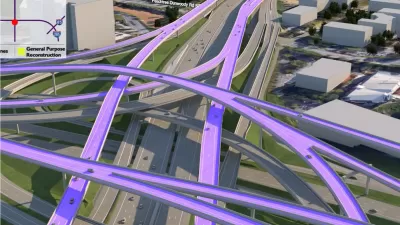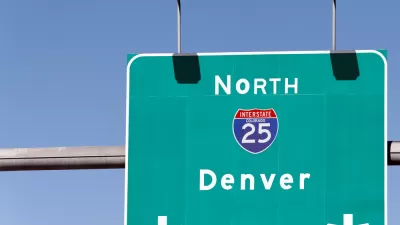Recently announced changes to a massive road-building program in Georgia will shift moves projects aimed at improvements for the trucking industry earlier onto the calendar, while pushing back projects located closer to Atlanta.

"Georgia officials unveiled major changes Monday to an $11 billion road-building program," reports David Wickart. The changes will delay projects to add toll lanes to Interstate 285 and State Highway 400.
"Meanwhile, [the Georgia Department of Transportation] will accelerate construction of truck lanes from Macon to McDonough and the widening of I-85 from Ga. 53 to U.S. 129 northeast of Atlanta," according to Wickart. "It also will move forward with smaller improvements along I-285."
While GDOT officials claimed the changes were made to accommodate feedback from the truck industry and increasing freight traffic volumes from Savannah, Wickart also suggests that the changes are in line with the state priorities of new Georgia Governor Brian Kemp, "who campaigned on improving the lives of residents in rural Georgia – and paid less attention to metro Atlanta as a candidate."
The $11 billion road-building program was proposed in 2016 by former-Governor Nathan Deal. "The 10-year plan was made possible by a gas-tax hike and other revenue increases approved by the General Assembly the previous year," explains Wickart. In 2018, a proposal to reconstruct the interchange between I-285 and Ga. 400 was named as one of the nation's wort highway boondoggles.
FULL STORY: Georgia DOT pushes back plans for metro Atlanta toll lanes

Maui's Vacation Rental Debate Turns Ugly
Verbal attacks, misinformation campaigns and fistfights plague a high-stakes debate to convert thousands of vacation rentals into long-term housing.

Planetizen Federal Action Tracker
A weekly monitor of how Trump’s orders and actions are impacting planners and planning in America.

In Urban Planning, AI Prompting Could be the New Design Thinking
Creativity has long been key to great urban design. What if we see AI as our new creative partner?

Cal Fire Chatbot Fails to Answer Basic Questions
An AI chatbot designed to provide information about wildfires can’t answer questions about evacuation orders, among other problems.

What Happens if Trump Kills Section 8?
The Trump admin aims to slash federal rental aid by nearly half and shift distribution to states. Experts warn this could spike homelessness and destabilize communities nationwide.

Sean Duffy Targets Rainbow Crosswalks in Road Safety Efforts
Despite evidence that colorful crosswalks actually improve intersection safety — and the lack of almost any crosswalks at all on the nation’s most dangerous arterial roads — U.S. Transportation Secretary Duffy is calling on states to remove them.
Urban Design for Planners 1: Software Tools
This six-course series explores essential urban design concepts using open source software and equips planners with the tools they need to participate fully in the urban design process.
Planning for Universal Design
Learn the tools for implementing Universal Design in planning regulations.
Appalachian Highlands Housing Partners
Gallatin County Department of Planning & Community Development
Heyer Gruel & Associates PA
Mpact (founded as Rail~Volution)
City of Camden Redevelopment Agency
City of Astoria
City of Portland
City of Laramie




























